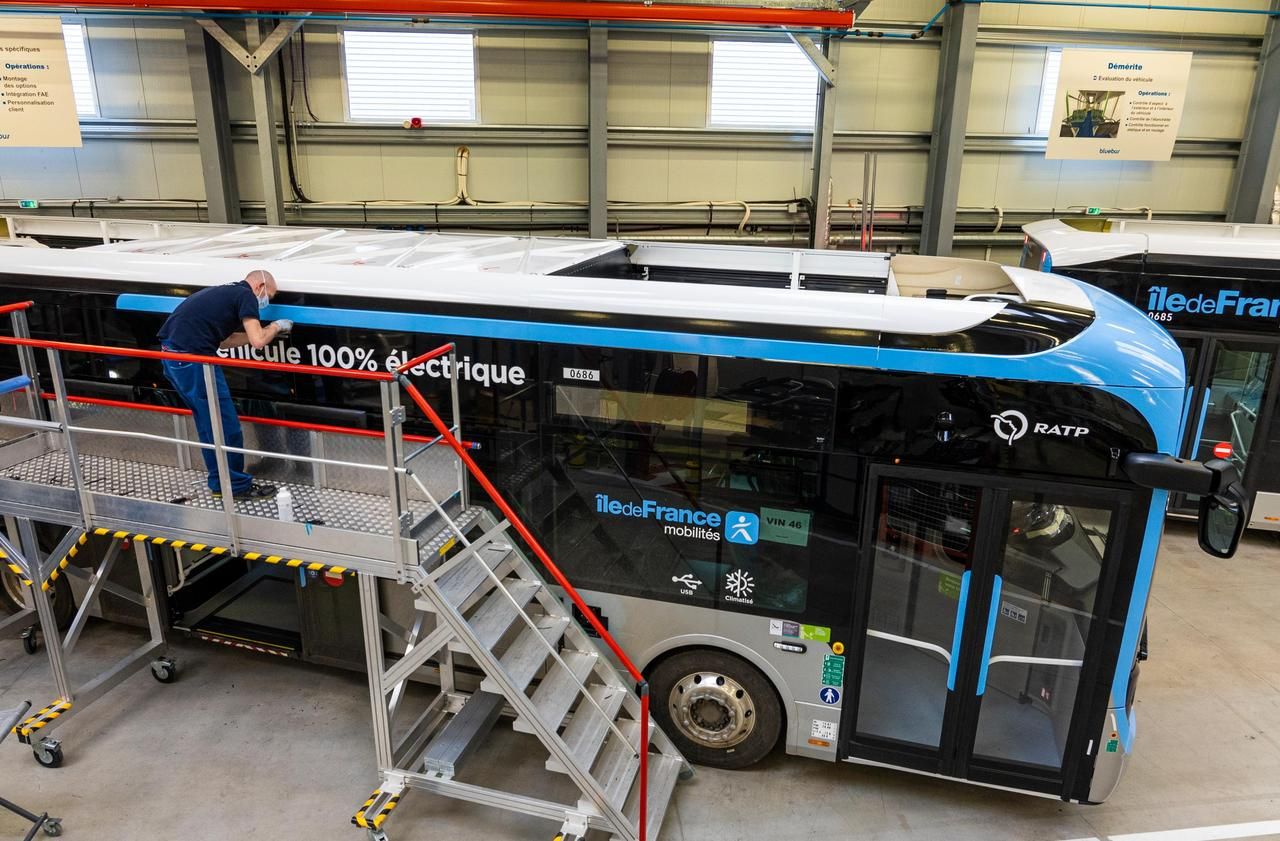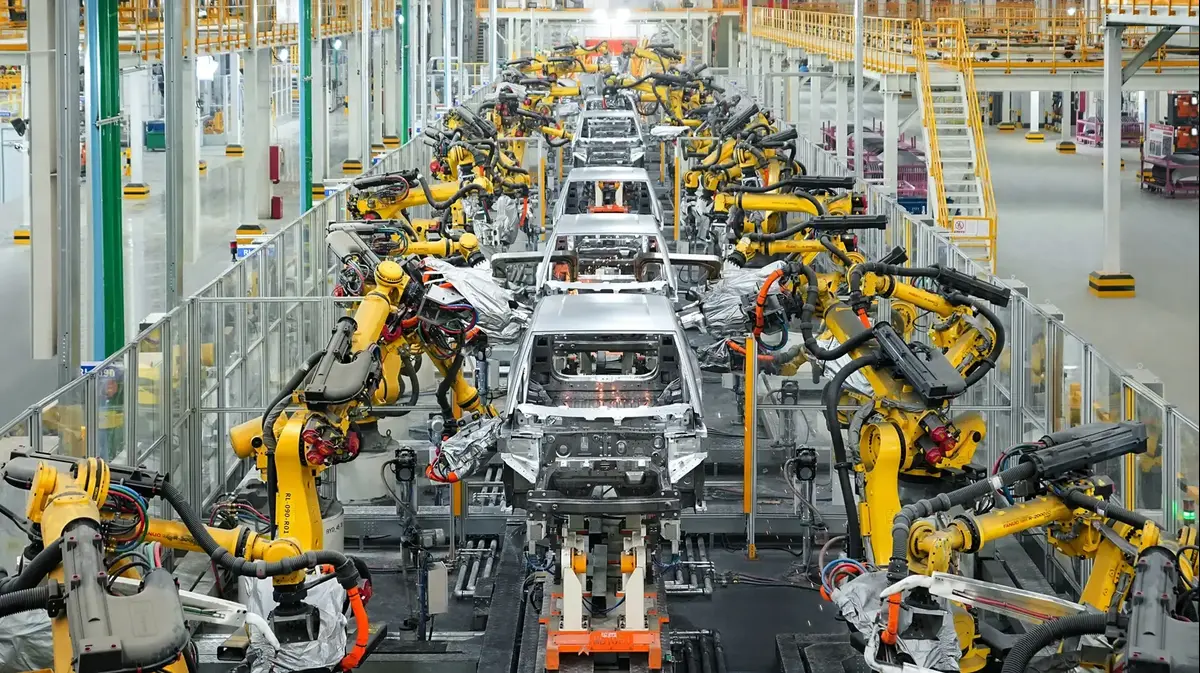What if Finistère, “end of the earth” in Breton, became an outpost of the next energy revolution?
In Ergué-Gabéric, in the suburbs of Quimper, 100% electric buses are currently being built by the dozen on the Bluebus site, a subsidiary of the Bolloré group.
“Ile-de-France Mobilité has ordered 159 from us to replace the old diesel models of the RATP in Paris and the inner suburbs,” recalls Serge Amabile, Bluebus sales director.
For example, they have started to equip lines 341 or 88. ”The region and the operator aim to“ green ”, in electric or biogas, two-thirds of the 4,700 diesel that make up their fleet (and carry a billion passengers per year) by 2025. A transition that will come at a cost.
An electric bus is billed between 460,000 and 600,000 euros.
Against 300,000 euros for a biogas, and 250,000 euros for a diesel.
"A new call for tenders, still for Ile-de-France, will be launched next March," continues the site owner.
And we are working out our weapons to respond to them.
"
The batteries are made on site
With its two versions (6 and 12 meters), Bluebus undoubtedly has solid arguments, in particular against its two French competitors: Heuliez and Alstom.
The company can be proud of producing (almost) 100% made in France.
And even… "made in Brittany".
“Two elements are exceptions, admits Sébastien Holvoet, production manager.
The structure of the bus and the engine.
The skeleton is indeed imported from Russia.
The 350 kg motor is supplied by the German Siemens.
On the other hand, it is powered by 2.7 t of batteries entirely manufactured on site, cells included.
A unique specificity in Europe.
The rest of the assembly of the Bluebus is similar to a gigantic Lego.
Around a hundred employees, with multiple trades (electricians and electronics, bodybuilders, assemblers, welders, etc.) work along the production line.
The driver's station is mounted separately in a corner of the workshop, with its ultramodern dashboard (the “podium” in the jargon) manufactured by Actia, a Toulouse SME.
Before being nested in the front of the vehicle.
At the end of the chain, the “Alarm Clock” is the last step: after recharging for a few hours on the network, the “ON” button is activated.
A whole battery of checks then begins.
The manufacturing process of batteries, with lithium layers.
LP / Yann Foreix
From "software" (the computer which governs the electronic controls of the bus), to the handling of the vehicle.
“Each of these buses will undoubtedly carry millions of passengers for fifteen years,” continues Sébastien Holvoet.
It's a big responsibility, so nothing is left to chance.
»And if in the past, thermal buses were routed by road, the reduced autonomy of electric buses (280 km), as well as the absence of a sufficient network of charging stations, obliges the site to transport them by trucks to the capital.
In the factory parking lot, dozens of Bluebus are thus waiting to be delivered.
Soon a call for tenders for Rome
“We have it under our feet, jokes Jean-Luc Montfort, president of Bluebus.
Our factory is running at 50% of this capacity and even if it takes five weeks to build an end-to-end Bluebus, we will be able to ramp up to 200 buses per year.
»With new calls for tenders in prospect, including one for the city of Rome (Italy) for 120 electric buses.
Faced with European protectionism, the Chinese, the largest producers of electric buses in the world (more than 500,000 units already in circulation), have left the race.
At least for the moment.
There remains therefore competition from France, but also Spanish (Irizar) or Polish (Solaris).
The president of Bluebus hopes to increase the production rate to 200 buses per year.
LP / Yann Foreix
So many players for a booming market, environmental constraints oblige.
According to Avere (National Association for the Development of Electric Mobility), France is even on the second step of the podium of European countries with the most electric buses in their cities (behind the Netherlands, but ahead of the Germany, Norway, the United Kingdom and Spain), with 4.2% of registrations in 2020. The Bloomberg agency estimates for its part that the European fleet has reached 4000 electric buses.















